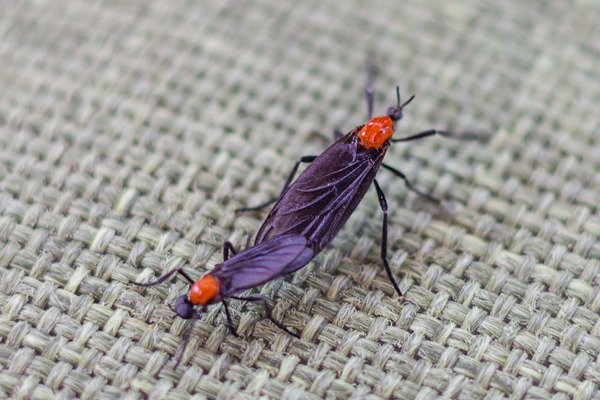Everything You Never Wanted to Know About Love Bugs
Posted: September 22nd, 2022
Florida’s Twice-Yearly Nuisance Insects
If you’re new to the Central Florida area, we’re guessing you were unpleasantly surprised when May and September rolled around and the skies were darkened by thousands of black and orange bugs. These little critters are love bugs, and they’re infamous for descending on homes and cars alike every May and September. But just what exactly are love bugs, and how do you deal with their seemingly infinite numbers?
The origin story of the love bug is an almost mythological one. A widely accepted rumor claims that love bugs were created in a laboratory at the University of Florida as predators of pesky mosquitoes – an experiment that ultimately failed when they were released into the wild and showed no appetite for mosquitoes whatsoever. However, this rumor is false. The Crowley Museum and Nature Center noted, "If science had advanced to a level of being able to completely create an organism that successfully feeds and reproduces, do you really think it would be a lovebug?"
The truth is that love bugs migrated to the U.S. from Central America around 1920, and established their presence in Florida in the 1940s. They’ve managed to establish such a strong foothold in Florida for a couple of main reasons: Firstly, because not many predators use them as a food source, and secondly, they thrive in heat and moist environments with plenty of decaying organic matter (think swamps and marshes).
Since they’re such a nuisance, you may wonder why they’re called “love” bugs. Love bugs have a unique mating behavior in which they link their bodies once they’ve paired up and remain that way after they’ve laid their eggs and passed away. Generally, love bugs only live for two to three days encompassing the mating cycle, so they remain paired up for life. Romantic, right?
What Issues Do Love Bugs Cause?
So now that we know what love bugs are, it’s time to figure out how to deal with them. Before you’ve experienced them in full force, you may be wondering, “Why do people hate them so much?” After all, they don’t bite or sting, they don’t transmit diseases, and they’re not poisonous. However, the real issues come from the way they tend to swarm. Here are a couple situations in which they can cause hazards.
They Reduce Visibility on the Road
It sounds like something straight out of a horror movie: love bug swarms can become so dense that they can reduce visibility for drivers on the road. It’s important that you take particular care when driving in May and September, which are their main breeding months. Some areas may have signs warning you that bug swarms are possible. If necessary, pull over and wait until the swarm passes by.
They Damage Car Paint and Engines
When you’re driving through a swarm like the one we described above, your car may be accumulating more damage than you’d expect. Most notably, love bugs can wreak havoc on your car’s paint. When love bugs die on the front of your car or the hood and they’re allowed to bake in the sun, they turn acidic, which in turn eats away at your car’s paint. Be sure to have a hose and car cleaning solution at the ready during the summer months. The best way to avoid this kind of damage is to clean the dead bugs off your car as soon as you’ve finished your trip.
Additionally, love bugs can enter your car’s radiator as you drive, clogging up the working parts of your car. If the swarming is particularly bad, they can coat your car’s grill and hinder air flow through the vehicle, which can cause it to overheat. Again, the best course of action is to clean up your car – especially around the front – after you’re done driving. Some auto supply companies offer products that keep love bugs from sticking to your vehicle; they’ll help reduce the amount of time you spend scrubbing.
They Can Invade Your Lawn
As we mentioned above, love bugs thrive in moist environments, and it doesn’t get much moister than Central Florida after heavy summer rains. If your yard has areas where water is allowed to pool or create pockets of damp and decay, you may soon find that you have a love bug infestation on your hands. Preventing areas of standing water is a good idea anyway, so make sure you resurface your yard as necessary. Additionally, clear out any areas that have excess debris that may be rotting or decaying, as spaces like this are exactly where love bugs like to lay their eggs.
Don’t Let Love Bugs Ruin Your Florida Experience
Even with love bugs, it’s hard not to love everything that Florida has to offer. Don’t be alarmed when you experience your first love bug swarm! In no time, you’ll know all of the preparation and recovery tasks you need to keep your home and car safe from these pesky invaders. If you’re ready to establish your home in Florida, call Ellingson Properties at 321-750-7050 to learn more about our available homes in Brevard County.

